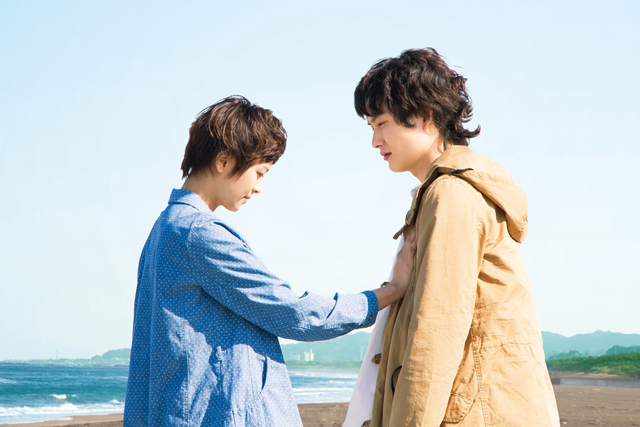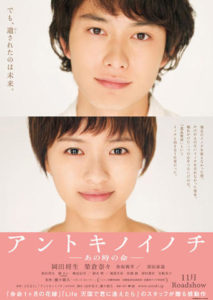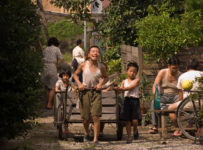[stextbox id=”grey” caption=”Life Back Then (2011)” float=”true” align=”right” width=”200″]
Director: Takahisa Zeze
Runtime: 131 minutes
Starring: Masaki Okada, Nana Eikura
Country: Japan
Rating: Worth A Look (?)
[/stextbox]
One of the major coups of the Japanese Film Festival this year was Takahisa Zeze’s latest feature, Life Back Then (アントキノイノチ), winner of the Innovation Award at the 2011 Montreal Film Festival. Even more impressive was the timing of the release, coming out in Japan during the 15th Japanese Film Festival and debuting in Australia as the closing night film. We last saw Zeze’s handiwork in Australia at JFF13, with the contagion epic Pandemic, but his four-and-a-half hour epic Heaven’s Story debuted at festivals across the world last year. With Life Back Then, Zeze pairs it back to a more restrained melodrama.
Troubled and emotionally stricken by the events of his high school years, Kyohei (Masaki Okada) has shut himself off from the world. Taking a job as a “cleaner”, the company he works for specialises in the removal of the possessions from a deceased’s residence. There he meets Yuki (Nana Eikura), a similarly damaged person who has closed herself from human interaction. As the two begin to grow close enough to discuss their emotions, they discover that neither of them may be ready for that yet.
Life Back Then draws on themes from two major Japanese films of the last few years. The obvious comparison is with Departures, a film that dealt with the taboo subject of handling death via a recent employee at a mortuary. Yet where that film handled the subject with humour and grace, Life Back Then is more about the intimate and fragile emotional states of two individuals, and its handling of the difficult subjects of school bullying and suicide often feel like Japan’s 2010 official entry to the Oscars, Confessions. While Kyohei’s means of dealing with his past in no ways take the often violent and disturbing paths of that film, there is a cold and often crushing angst in the flashback scenes. These do not so much sit at odds with the emotionally detached Kyohei as give a context to them.
Yuki has her major childhood trauma kept under wraps until the last third of the film, which is deliberately paced until a forced tearjerker of a moment forces certain things to come to light. It is followed by some emotionally overwrought scenes, although Zeze seems to have purposefully done so to contrast the slower earlier moments. Okada and Eikura carry this two-hander effectively, in a fairly straightforward adaptation of Masashi Sada’s novel of the same name. Yet the otherwise gentle pacing and intriguing mysteries at the heart of the film carry this (almost) feel-good film over the finish line.
[stextbox id=”custom”]Life Back Then was harrowing for its characters, but intriguing for audiences. In great sadness there is joy, and if you can overlook the melodrama, there is much to be enjoyed here.[/stextbox]
Life Back Then played the closing night of the 15th Japanese Film Festival in Australia on 27 November (Sydney) and 6 December (Melbourne) 2011






